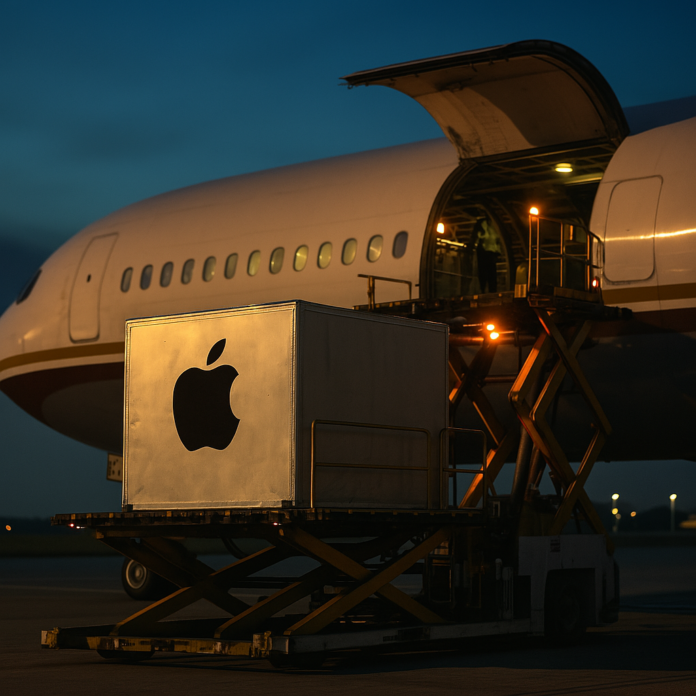In response to impending tariffs imposed by the U.S. government, Apple has reportedly airlifted five cargo planes filled with iPhones and other products from its manufacturing facilities in India and China to the United States. This strategic move, executed over three days in late March, aimed to stock U.S. warehouses ahead of the 10% tariff that took effect on April 5, 2025.
The newly implemented tariffs have significant implications for Apple’s supply chain, as the majority of its products are manufactured in China, Vietnam, and India. Specifically, goods imported from these countries are now subject to tariffs of 54%, 46%, and 26%, respectively.
Analysts have projected that these tariffs could substantially increase the retail prices of Apple’s products. For instance, the iPhone 16 Pro Max, which currently has a maximum price of USD $1,599, could see its price surge to nearly USD $2,300 if the additional costs are passed on to consumers.
To mitigate these impacts, Apple is exploring alternative manufacturing strategies, including increasing production in countries with lower tariff rates. The company has been expanding its manufacturing footprint in India, aiming to diversify its supply chain and reduce reliance on Chinese manufacturing.
But Apple’s issues are not just a search for low labour costs.
Steve Jobs had this argument with Barack Obama as far back as 2010. Jobs explained that its not cheap labour, it’s the trained workforce that is the issue. Apple needs 30,000 properly trained engineers to support a workforce of 700,000 workers they employ in China. “You can’t find that many in America to hire.”
And the situation hasn’t changed. As Tim Cook in 2017 at the Fortune Global form bluntly put it:
“The truth is China stopped being a low labor cost country many years ago and that is not the reason to come to China from a supply point of view. The reason is because of the skill and the quantity of skill in one location, and the type of skill. It is like the products we do require really advanced tooling and the precision that you have to have in tooling and working with the materials that we do are state-of-the-art, and the tooling skill is very deep here. You know in the US, you could have a meeting of tooling engineers, and I’m not sure we could fill the room — in China you could fill multiple football fields.”
So this may represent a temporary reprieve, but the issue the US administration understanding tech manufacturing in a global supply chain remains a challenge.


